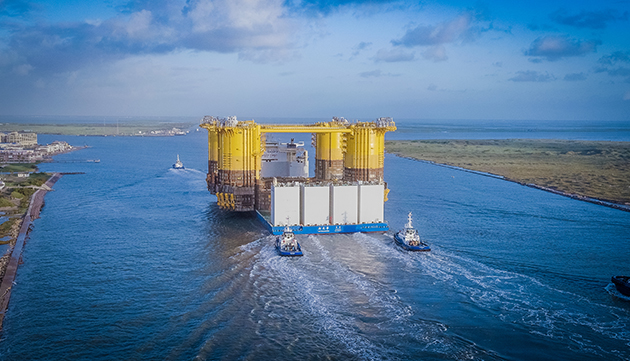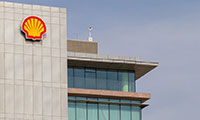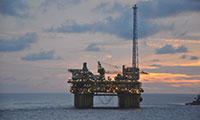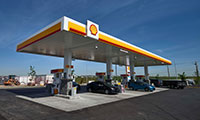Deep water
Deep water is the Upstream growth priority for Shell. We have advantaged positions in Brazil, the Gulf of Mexico, Nigeria and Malaysia – with substantial and profitable growth potential. Our global, deep-water production from already discovered fields is on track to exceed 900 thousand boe/d by 2020. Near-field exploration could add further growth, such as our announced Whale discovery in the Gulf of Mexico. We have shaped our deep-water business with economically resilient projects that are scoped, designed and safely operated to meet market conditions with an average forward-looking break-even price for pre-FID projects that we believe is less than $30 a barrel1.
Forty years ago, we pioneered deep-water development in the US Gulf of Mexico and have since led the industry on technological achievements. We remain focused on safely ramping up production at our Stones project, which began operations in late 2016. Our Appomattox project has seen an approximate 25% cost reduction since the FID was taken, after already achieving a 20% cost reduction against initial concept. In addition, we have six other major producing assets in the Gulf of Mexico with subsea tie-back connections to several fields. In early 2017, we sanctioned the Kaikias project, which is a 40 thousand boe/d tie-back to the Ursa platform.
In Brazil, we delivered approximately 45% of our global deep-water production from operated and non-operated assets in 2017. We have significant acreage in the Santos Basin Pre Salt, which is one of the best deep-water provinces with low break-even prices and continued growth potential, with new FPSOs planned through the early 2020s. We have interests in 11 FPSOs currently operating in the Santos Basin, including one FPSO testing the Libra Pre Salt oil field. Following a 2017 bid round, we increased our operated leases in the country with two new operated blocks and one new non-operated block.
Shell has been in Nigeria for more than 50 years and the country remains an important part of our deep-water portfolio, with clear growth potential. The Shell-operated Bonga field was Nigeria’s first deep-water development in depths of more than 1,000 metres; it began production in 2005 and has produced more than 600 million barrels of oil. We brought the Bonga North West deep-water tie-back on stream in 2014. In 2015, we increased production after completing the third phase of infill drilling from the Bonga Main field.
With a 125-year history in Malaysia, Shell pioneered the oil and gas industry in the country and fuelled its growth. Offshore Malaysia, Shell operates five producing oil fields, including the Gumusut-Kakap deep-water field where production began in 2014. Malikai, Shell’s second deep-water project in Malaysia, features the country’s first tension-leg platform and began production in December 2016.
1 The forward-looking breakeven price for pre-FID projects is calculated based on all forward-looking costs associated with pre-FID projects in our development portfolio. Accordingly, this typically excludes exploration and appraisal costs, lease bonuses, exploration seismic and exploration-team overhead costs. The forward-looking breakeven price for pre-FID projects is calculated based on our estimate of resources volumes that are currently classified as 2C under the Society of Petroleum Engineers’ Resource Classification System. As these pre-FID projects are expected to be multi-decade producing projects, the less than $30 per barrel projection will not be reflected either in earnings or cash flow in the next five years.

Appomattox hull arrival in Ingleside, Texas, the USA.
 Our businesses and organisation
Our businesses and organisation
 Financial data
Financial data
 Projects
Projects
 Outlook
Outlook